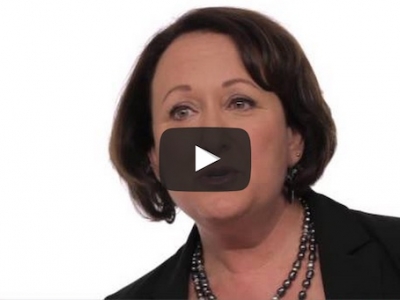
What does Proverbs say about motherhood?
Harriet Connor says the "picture perfect" mother of Proverbs 31 is equal parts her inspiration and condemnation.
Whenever I sit down to read Proverbs, a giant shadow falls across the page and darkens my view. It’s her – the “wife of noble character” from chapter 31. You know the one? She’s the biblical version of that “picture perfect” mother from your social media feed. Glowing with godliness, she is in equal parts my inspiration and my condemnation.
But if we really want to hear what the whole book of Proverbs has to say about mothers, we’ll have to step out from under her shadow for a moment and keep reading.
1. Mothers are people
All people – including mothers – need the godly wisdom that Proverbs imparts. The author, King Solomon, calls out: “Let the wise listen and add to their learning” (1:5a). Much of the book is written as a father giving advice to his child; wise mothers are those who sit and listen.
When we listen, we learn that wise living – including motherhood – starts with worship: “The fear of the LORD is the beginning of wisdom” (9:10a, 14:26). But honouring God leads us to love the people he has put around us. Proverbs paints a portrait of the wise person who does these things (like the woman in chapter 31) and the foolish person who doesn’t.
But you and I know there is a problem – we are not that Supermum from Proverbs 31. We get angry and impatient; we get lazy and selfish. In fact, every person has fallen short of God’s wisdom: “Who can say, ‘I have kept my heart pure; I am clean and without sin?’” (20:9).
Thankfully, we also know that one of Solomon’s own descendants has come to do for us what we couldn’t do for ourselves. Jesus “has become for us wisdom from God – that is, our righteousness, holiness and redemption” (1 Corinthians 1:30). We can inherit Jesus’ perfect wisdom, because he died the death of a “fool” in our place; Jesus embodies the proverb: “love covers over all wrongs” (10:12b).
As mothers, let’s remember that we are people who need God’s wisdom. And when we inevitably fall short of living it out, we can depend on his forgiveness too.
2. Ideally, mothers are wives
The bedrock of biblical family life is a faithful marriage. Proverbs calls on husbands to “rejoice in the wife of your youth” (5:18) and warns women about the tragedy of becoming a wife, “who has left the partner of her youth and ignored the covenant she made before God” (2:17).
Maybe you feel that your life is already too messy for the neat formulas of Proverbs – the harsh realities of sin and death might have left your family bruised or broken. While you may be walking on a path you did not choose, the fatherly voice of Proverbs still calls to you: choose how you will walk today. Our God is an expert in redeeming messy lives for his glory and our good.
Ideally, a spouse is God’s provision for our good: “He who finds a wife finds what is good” (18:22a); the same is true of husbands. But creating a positive home life takes conscious effort: “The wise woman builds her house, but with her own hands, the foolish one tears hers down” (14:1).
Proverbs shows us how we can build loving relationships with all people, including our spouse. This involves being teachable (10:8), patient (16:32), slow to anger (12:16), forgiving (10:12, 19:11), generous (11:25, 22:9), just (17:15), hardworking (10:4), self-controlled (29:11), content (23:17), and careful with our words (12:19, 24:26, 10:21). Proverbs calls on wives in particular to avoid being argumentative and bad-tempered (21:19).
Have you noticed any improvement in your attitudes and responses over the course of your marriage? When do you find it hardest to show these qualities at home? Why not choose one or two of them to strive towards this month.
3. Mothers are parents...
In Proverbs, mothers and fathers are almost always mentioned in parallel. Parents are equally responsible for the teaching, training, and discipline of children (1:8, 6:20) and equally deserving of their children’s honour (20:20, 23:22). They share in equal joy when their children grow into wise adults and equal grief when they don’t (10:1, 17:25, 23:25). Raising children is a team effort.
Does raising your children currently feel like a team effort? If not, how can you step back to allow your spouse to take more responsibility?
. . . to human children
Our children are people too – just like us, they have a foolish tendency not to honour God or love other people (22:15). And so they depend on us to guide them towards godly wisdom: “The rod of correction imparts wisdom, but a child left to himself disgraces his mother” (29:15). As adults, our children will be responsible for their own choices (23:19); but it is our job to start them on the right path (22:6).
The first way that Proverbs expects parents to do this is by teaching them: “My son, keep your father's commandment, and forsake not your mother's teaching” (6:20).
The second thing Proverbs expects parents to do is discipline their children. This refers not just to punishment, but to everything we do and say to guide our little “disciples” away from foolishness and towards wise living. We follow the example of our heavenly Father, who disciplines us because he loves us (3:11-12, 13:24). Discipline sometimes involves letting our children experience a little pain now to avoid a lot of pain in later life (23:13-14). Although Proverbs often uses the word “rod” to symbolise parental discipline, this does not mean that every parent must use physical punishment.
We get a good picture of the “rod” in Psalm 23, which describes God as a shepherd: “He guides me in paths of righteousness for his name’s sake. Even though I walk through the valley of the shadow of death, I will fear no evil, for you are with me; your rod and your staff, they comfort me” (Psalm 23:3b-4). In a similar way, our children feel safe when they know where the boundaries are; they can rest secure in the knowledge that their parents will lovingly guide them.
Which attitudes and behaviours would you like your children to improve on this month? How can you model, teach, train, and discipline them towards this goal?
4. Mothers are neighbours
Proverbs sees the nuclear family as part of a wider community. It encourages everyone – including mothers – to be good neighbours (3:29). Friends and neighbours provide mutual support in tough times: “Better a neighbour nearby than a brother far away” (27:10b). This is part of our worship: “Whoever is kind to the needy honours God” (14:31b).
What local network of relationships are you part of? How can you provide support to people outside your family? In what ways do you receive support from others?
That woman!
The final chapter of Proverbs is about two mothers. First, we listen in to the wise things that one mother taught her son (31:1-9). Next, we peer through the window to see wisdom exemplified in the life of another (31:10-31). This mother is a person who honours God; she is a wife who faithfully does good to her husband; she is a parent who provides for and teaches her children; and she is a neighbour who shares with the needy.
This kind of woman is very rare: “a wife of noble character – who can find?” (31:10). None of us can expect to do the things she does perfectly; but we can aim to do them consistently. This woman represents an ideal, but one that is worth striving for in spite of our imperfections – she is a “woman who fears the LORD” (31:30).
Why not take some time this week to read through Proverbs 31. Let’s keep asking God to fill us with his wisdom and grace for motherhood.
Harriet Connor lives on the Central Coast of NSW with her husband and three sons. She loves thinking hard about how the Bible shapes our approach to parenting. Her book, Big Picture Parents - Ancient Wisdom for Modern Life, will be released in 2017. You can find out more at www.harrietconnor.com.
For more articles from Growing Faith, subscribe to our monthly e-newsletter.
To hear about the latest books and resources from Youthworks Media, subscribe here.







